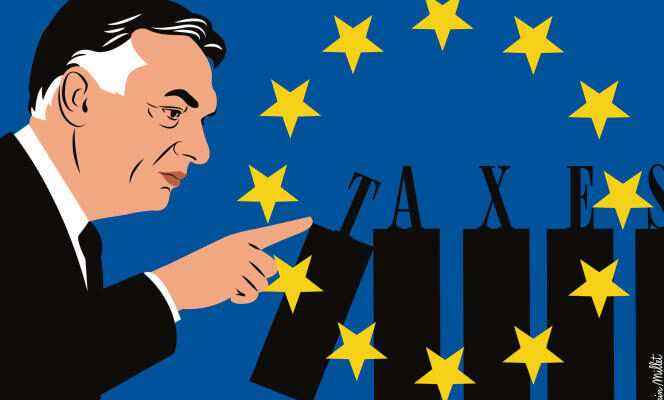“That is part of the charms of this negotiation. There are advances, there are setbacks.commented, laconically, Bruno Le Maire, Friday, June 17, at the end of the Council of European finance ministers, during which Hungary opposed the adoption, by the European Union (EU), of a minimum tax of 15% on the profits of large multinationals, as of December 31, 2023.
The French minister, who hoped that the EU would finally give substance to the project adopted in 2021 by 140 countries under the aegis of the Organization for Economic Co-operation and Development (OECD), after nearly five years of debate, is in reality very annoyed. France, a driving force on the subject, holds the rotating presidency of the Council of the EU until 1er July. She would have liked to be able to hang on to her list a global tax reform never before attempted, capable of bringing an end to zero-rate tax havens and tax dumping strategies. The decision would also have been particularly welcome, two days in France before the second round of the legislative elections. Hungary had however given its approval to the reform, at the end of the year 2021, at the level of the OECD, with the rest of the international community.
“We need to reach a final adoption of this draft directive in the coming days”, nevertheless declared Bruno Le Maire, suggesting final political negotiations on the wire to rally Budapest and adopt the text unanimously by the 27 member countries, as the rule requires. The countdown is tight to say the least, because the 1er July, France will hand over the presidency of the EU Council to the Czech Republic, whose agenda may be different.
Diplomatic subject
The subject, in fact, is much more diplomatic than fiscal and refers to the complicated relations that Viktor Orban’s Hungary has with the European Union. Thus, officially, Budapest’s veto is based on the context of high inflation and its fear that the introduction of such a global minimum tax will cause “serious damage to European economies”. However, in Brussels, the turnaround in Budapest is interpreted differently, in the midst of discussions on access to the European recovery plan for a total amount of 750 billion euros, which the European Commission intends to condition on the strengthening of the country’s anti-corruption policy. .
Hungary is not the only one to seize this political momentum, to push its pawns. At the beginning of June, Poland also threatened to derail the adoption of the tax transposition text. Warsaw demanded that this global minimum tax be linked to the second part of the reform designed and piloted by the OECD, yet still in the process of technical finalization, and relating to a fairer distribution of the taxes of multinationals between their countries of origin (those headquarters) and where they really make their profits (the countries where their markets and customers are located).
You have 46.08% of this article left to read. The following is for subscribers only.
